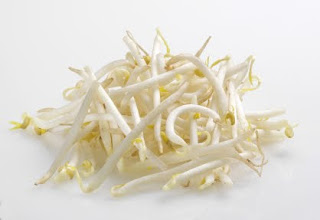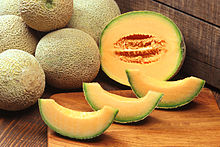The papaya is an amazingly rich source of the proteolytic enzymes. These are the chemicals that enable the digestion of protein. Papain, which is the most important of these enzymes in the papaya, is extracted and dried as a powder for use to aid the digestion, and it is often used as a meat tenderizer, the enzyme partially breaking down the meat fibres - digesting them in fact.
Many experts, such as Dr Lytton-Bernard, have claimed rejuvenating properties for papaya, especially for the control of premature ageing. It may be that it works simply because a poor digestion leaves the body without the correct nutrients. Those who find it almost impossible to digest anything frequently find that papaya used regularly, either in tablet or juice form, marks the turning point in the climb back to vitality and good health.
As a cleanser you can take a quarter pint (150ml) of papaya juice alternated each hour for twelve hours by the same amount of cucumber or green bean juice. Papaya loses some of the enzymes as it ripens, so if you have the choice select them green. They are easy to obtain in most parts of America but are not found in British greengrocers very often. Fortunately there has been a rapid expansion in the numbers of specialist shops providing for the needs of the Indian and West Indian communities where papayas can be bought.
Papaya contains arginine which is known to be essential for male fertility and also carpain, an enzyme thought to be good for the heart. Fibrin also occurs and this substance is not commonly found in the plant kingdom; in man it forms part of the blood clotting process. The papaya is an excellent source of vitamin C, with 82mg per 100g (4oz), and is rich in carotene. After treatment with antibiotics the use of papaya juice will quickly assist the restoration of the normal bacteria in the gut which will have been destroyed by the treatment. Papaya is good for many digestive disorders and is excellent for improving poor digestion. It has also been recommended as part of the treatment for cancer. Therapeutically it can often be combined with pineapple juice in which there is another important enzyme. bromelain.
The skin of the papaya is a first class external treatment for skin wounds and places that do not heal quickly. The pulp from the juicer can be used for this and as a poultice.
Papaya is a fruit known to be very delicious and musky. This soft and sweet fruit, which is often also known as fruit of the angels, has lots of health benefits. Although papaya was once considered very exotic, today, it is a common fruit that is found throughout the world. Summer and fall are the seasons in which papayas are mostly grown. Yet, this delicious fruit can be obtained all through the year. Papayas are spherical in their shape and can also be as long as 20 inches. The flesh is orange with pink undertones. The more fleshy and orange the inside of the fruit is, the sweeter the papaya usually turns out to be. The fruit also has black colored seeds in the inner cavity. The seeds are round and are covered with a gelatinous cuticle. Although these seeds are edible, they are extremely bitter and therefore not very popular. The seeds may be used for several home remedies as there are a lot of benefits associated with them.
Papaya enzyme benefits are very well-known all over the world. Papain, which is the enzyme found in the papaya fruit, helps the body digest proteins. The unripe papaya fruit has a large concentration of the papain enzymes. This enzyme is associated with most of the health benefits of papaya and is therefore extracted in order to be used in health supplements. The enzymes may also be extracted to make medications to aid digestion. In some chewing gums, papain may be used as a flavoring ingredient.
Papaya health benefits. Apart from the excellent taste and the digestive enzymes, the benefits of papaya fruit are many. Papayas are bright yellow or orange in color and therefore are rich sources of beta carotene. They are also rich in vitamin C, folates, vitamin B, and flavonoids. There are many minerals in the fruit as well. In addition to soluble fiber, papaya also contains potassium, magnesium, and pantothenic acid. This amalgamation of nutrients helps in improving cardiovascular health and can also help prevent cancers. The enzyme papain could be used to treat sports injuries and is also beneficial in case of trauma and allergies. Papaya fruit benefits come from all the various nutrients that the fruit contains. The fruit is low in sugar and therefore is excellent for diabetics as well. Regular consumption of papaya can help in the prevention of diabetes and atherosclerosis.
Papayas contain a high concentration of provitamin A carotenoid phytonutrients. These are very powerful antioxidants and are very good source of vitamins A, C, and E. All these vitamins act as antioxidants in the body and are able to get rid of free radicals to prevent cancer. The antioxidants also prevent the oxidation of cholesterol. This is important because if the cholesterol becomes oxidized, it may begin to stick to the walls of arteries, making them smaller and causing hypertension. Cholesterol can form plaques in the blood vessels causing blood clots to form or forming arterial blockages themselves.The fiber present in papayas can help bind the toxins that cause cancer. In the colon, these toxins help in keeping the cancer causing toxins at bay. The other nutrients contained in papaya are also known to reduce the risk of cancers, especially that of colon cancer.
Papaya juice benefits can also not be ignored. Papaya juice has many anti-inflammatory properties due to its enzymes papain and chymopapain. Both these enzymes can together lower inflammation in the body. For a person healing from burns, papaya can be an excellent remedy for fast recovery. Apart from the cosmetic papaya skin benefits, the juice of the fruit can also help in healing of flesh wounds. The antioxidants, vitamins A, C and E, together act as anti-inflammatory agents. These are good at reducing both external and internal inflammation. In diseases which are worsened due to inflammation, like asthma, arthritis, rheumatoid arthritis, and osteoarthritis, the papaya fruit can be really beneficial. If you are wondering what is papaya good for, the answer is everything. Papaya can be an excellent ‘sick food’. This means that the nutrients present in papaya can speed up convalescence in sick patients. People with inflammatory diseases can actually be aided in their treatment by consuming papayas. The vitamin A rich papaya can also help you avoid the harmful effects of second-hand smoke.
The benefits of papaya juice and the benefits of papaya leaf extract are similar. Among the many benefits for the health and skin, papaya’s nutrients can also boost immunity. Both vitamins C and A, which are found in abundance in papayas, are excellent for the body’s immune system. Together, these nutrients can help prevent illnesses such as cold, flu, and other recurrent infections. As we age, macular degeneration is one of the side effects that many experience. Macular degeneration is a natural degenerative disease that can be prevented by consuming at least three servings of papaya every day. The antioxidants, vitamins A, C and E, are strongly related to the prevention of vision loss and therefore are excellent when it comes to having good vision. The benefits of papaya seeds are also similar because they have similar concentrations of the nutrients that the fruit and the papaya plant contain. However, papaya seeds are considered healthier than the fruit itself because of the high bio availability of the nutrients.
It is known that papaya extract is excellent for the skin. The benefits of papaya for the skin can be utilized in the form of papaya soap. Papaya soaps are made from the extracts of the papaya fruit. The vitamins A, C and E in the papaya soap help in improving the overall texture and tone of the skin. In particular, vitamins A and E help in repairing and rebuilding tissues, whereas vitamin C helps in improving overall skin texture and complexion. Bathing with papaya soap, which contains natural extracts of the fruit, can help make your skin appear more youthful and beautiful. Papaya enzyme benefits for the skin are also similar. These enzymes help the dead skin slough off naturally, revealing beautiful, younger skin underneath.



